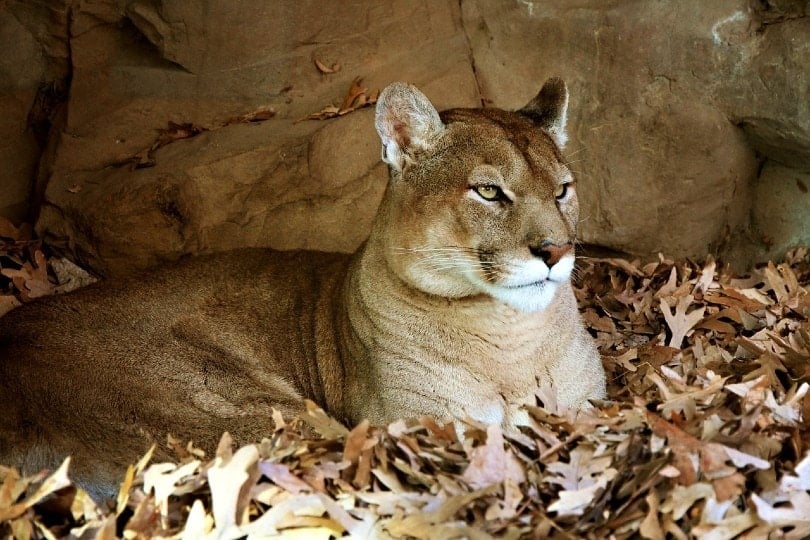There are many different types of wild cats in the United States. These include big cats and small cats, from mountain lions and jaguars to lynxes, ocelots, jaguarundi, and possibly margays. Some of these animals are endangered or threatened, some are thriving. The key to their survival is their ability to be tolerated by humans.
Virginia may be for lovers, but it’s not for wild cats: only one species of wild cat remains established in the commonwealth. After roaming the countryside of Virginia for centuries, wild cat species are now less numerous. It’s clear that wild cats in the United States are struggling against human encroachment into their natural habitats, erosion of prey, and competition with other predators. Virginia also closely controls wild cat populations within the state, so the captive wild cat population is most likely much lower than in other jurisdictions. The following article will give you a better understanding of the wild cat situation in Virginia.

The 2 Types of Wild Cats in Virginia
1. Bobcats
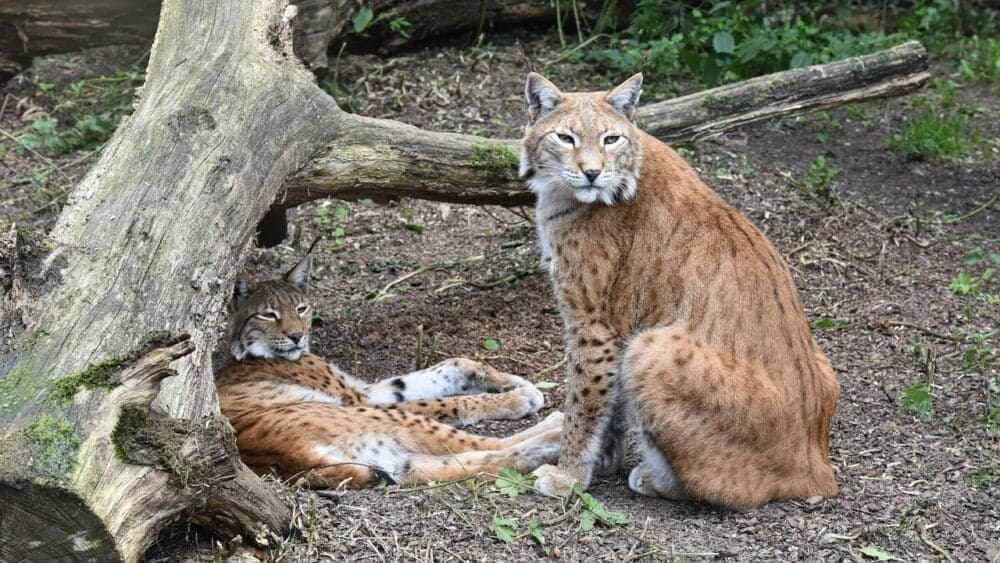
Virginia’s most established wildcat is the bobcat. These cats are incredibly secretive by nature. As a result, it is difficult to determine their number or distribution. The number of bobcats in the region is estimated to be one per 4 square miles. Due to their stealthy nature and ability to blend in, you are unlikely to encounter one. Their nocturnal nature adds to their elusiveness.
Since bobcats aren’t much larger than domestic cats, they pose no threat to people. Although they hold territory near populated areas, they avoid people as much as possible. If they visited your backyard you’d probably never even realize it. Rabbits and rodents make up the majority of their diets, but they also consume reptiles and birds. Another reason they are tolerated among the human population is that they are generally thought to be harmless and rabies is extremely rare in them.
2. Mountain Lions
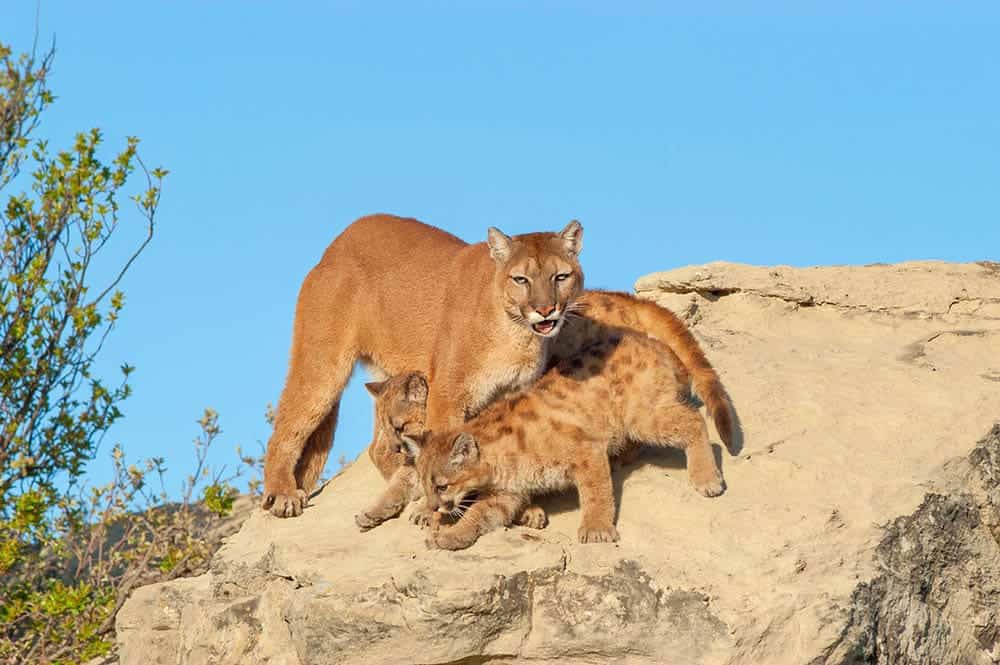
Mountain lions, also called cougars or pumas, have been documented in the west and south of the state, but they are not considered to be established, yet. The primary reason for this is that mountain lions are not native to Virginia and they do not have a strong prey base there. Mountain lions primarily hunt deer, elk, and even sometimes small game like rabbits. They are the largest of all the cats in North America and can be quite fierce when defending their territory. If you spot a mountain lion in Virginia, be cautious and move away.
Mountain lions end up in Virginia because they have a tendency to roam. While they may not live in the commonwealth, they may visit from an established population in a nearby state, remain for a short period of time, and then return home. Young males are most likely to do this, as they need to seek out new territory. Females are slower to leave established territory, and this is why although mountain lions visit Virginia they do not have an established population there. However, it is thought that as mountain lion populations grow in nearby states, the likelihood of a population becoming established in Virginia is growing.

Are There Wild Jaguars in Virginia?
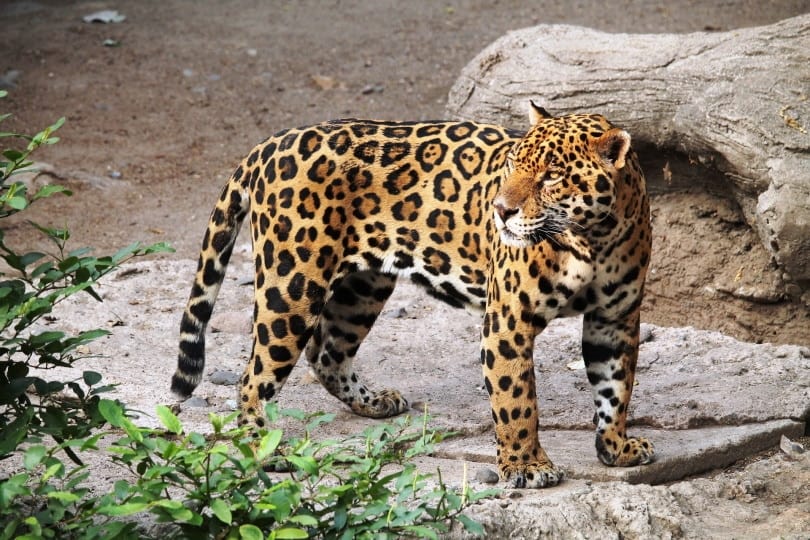
Currently, jaguars live in Mexico and appear to cross into the core Southwestern United States. There are no wild jaguars in Virginia. However, Thomas Jefferson, one of the Founding Fathers of the United States, mentioned seeing a “spotted cat” while he was living in Virginia. This suggests that there may have been wild jaguars in the area when he was living there—then again, he may have been mistaken. While it is impossible to know for sure, this first-hand account may support the idea that there were potentially some wild jaguars in the region prior to the population explosion and environmental destruction following on from European colonization. Considering the vast distance between Virginia and their native range today, it is almost impossible that you will see a wild jaguar in the commonwealth.
The Control of Wild Cats in Virginia
The laws of Virginia regulate the populations of wild cats within the commonwealth by prohibiting them from being kept as pets, regulating their numbers, and requiring that they be humanely disposed of if they are captured outside their natural range. These laws are designed to protect the wild cat population and ensure that they remain a part of the natural landscape. Here’s what you need to know about the control of wild cat populations in Virginia.
Does Virginia Allow the Ownership of Wild Cats as Pets?
The Commonwealth of Virginia does not allow pet ownership of wild cats because they are considered wild animals and their ownership can pose a danger to the public. Wild animals, including wild cats, are often unpredictable and hostile, and their ownership can lead to conflicts with other residents and pets.
There is also a potential for disease transmission between pets and wild animals, which can be dangerous for both parties. When exotic cats are kept as pets, they sometimes break out of their enclosures and roam around. It is highly unlikely that you will see an exotic cat roaming around Virginia as a result of this law.
Does Virginia Allow the Possession of Wild Cats for Research and Educational Purposes?
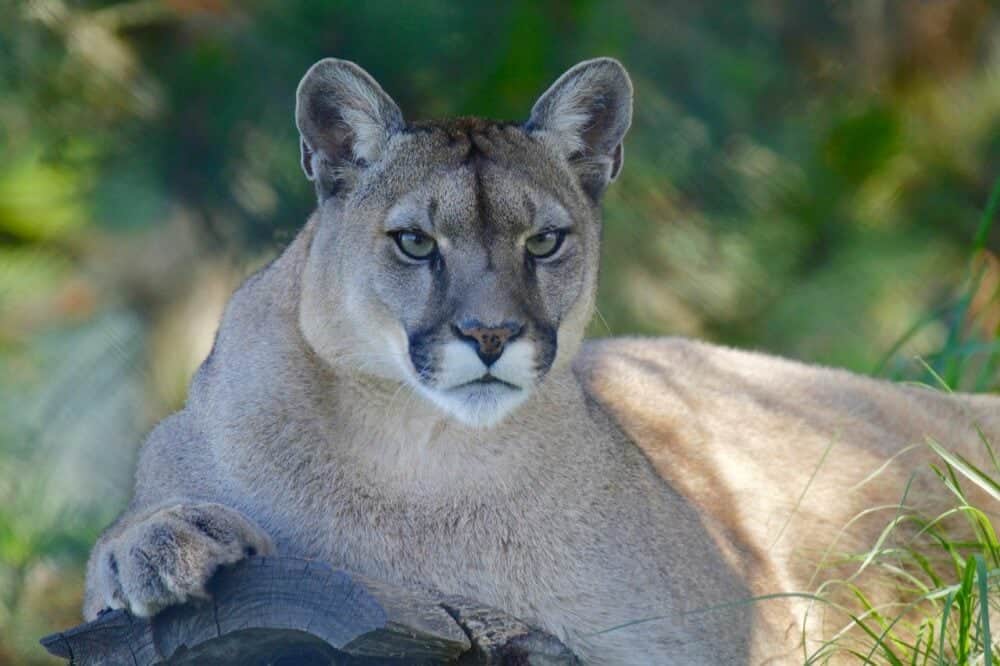
The United States Department of Agriculture (USDA) is charged with the care and management of America’s agricultural resources. To own a wild cat in Virginia, you must be USDA licensed or prove possession has educational or scientific value. Possession without a license is illegal and can result in fines and/or imprisonment. If they were to escape, big cats would pose a serious threat to public safety, since they are extraordinarily strong and hard to contain.
Given that these licenses are closely managed, there is little chance a wild animal could break out of one of the scientific or educational facilities allowed to house them.
Is it Legal to Own Servals and Savannah Cats in Virginia?
It is legal to own a Savannah cat in Virginia, provided that the animal is registered with the state and meets all other requirements for domestic cats. All generations of Savannahs can be owned, meaning an F1 Savannah (Serval bred to a domestic cat) can be kept as a pet without a special permit. Serval cats are considered exotic animals, and you will need a special permit to bring one into the state. However, occasionally, Servals have wandered in all by themselves. In 2019, a Serval cat named Rocky traveled all the way to Virginia Beach, from North Carolina’s Outer Banks, about 80 miles away. Animal Control guessed that Rocky probably ate seagulls along the way as he traveled up the Atlantic Coast.
Is it Legal to Hunt Bobcats in Virginia?
It is legal to hunt bobcats within certain limits in Virginia. Bobcats, along with raccoons, foxes, and opossums, during the official hunting seasons, can be hunted by day or night. Additionally, it is unlawful to use electronic recordings of animal or bird calls to hunt bobcats on private lands without the landowner’s permission. Except where prohibited specifically, electronic calls are legal to use when hunting bobcats on public land.

Conclusion
In conclusion, there are several different types of wild cats in Virginia. But in the wild, there are only two: the bobcat and the mountain lion. Both of these animals have their own unique characteristics. It is important to know the difference between these animals so that you can stay safe when out and about in their territory. The best way to do this is by learning about their habits and ecology. This will help you identify any potential dangers and make informed decisions when interacting with them.
Featured Image Credit: PublicDomainPictures, Pixabay
